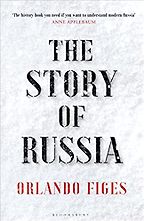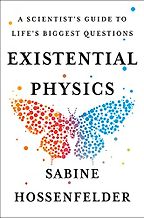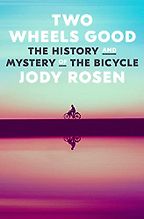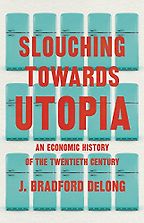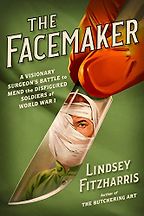There are a lot of interesting new nonfiction books already out or about to be published as we go into the fall of 2022. In this roundup, I’m going to highlight the ones I’ve enjoyed in the last few months but it’s by no means comprehensive. As usual, much depends on your personal tastes and existing knowledge of a subject, so do try out books before committing—easy to do with new books that are almost always published digitally with free samples available.
“Those who cannot remember the past are condemned to repeat it,” said Spanish-born philosopher George Santayana (1863–1952), in a quote that often does the rounds on social media to emphasize the importance of understanding history. The problem is that history is highly subjective, and its study, especially in school, traditionally part of a country’s nation-building project. The Story of Russia by British historian Orlando Figes explores the history that Russians tell themselves, an important narrative to be aware of if we’re to make sense of Vladimir Putin’s invasion of Ukraine.
Get the weekly Five Books newsletter
The book opens in 2016 with the unveiling of a statue in front of the Kremlin to Grand Prince Vladimir, ruler of Kievan Rus, ‘the first Russian state’, between 980 and 1015. Vladimir Putin gave the opening address. “The Ukrainians were furious,” Figes writes. “They had their own statue of grand prince, Volodymyr as they call him. It was built in 1853…high up on the right bank of the Dnieper River overlooking Kiev.” As he notes, “What we have in the conflict over Volodymr/Vladimir is not a genuine historical dispute, but two incompatible foundation myths.” The book is a highly readable overview of more than a millennium of Russian history in fewer than 300 pages with, as the title suggests, an eye on the ‘story’ that’s being told and how it is relevant to the present. Not only does the book make you think about Russia, it also makes you think about the history of every country and the power of these ‘imagined communities.’
I aspire to live in a world where my decisions are based on evidence, facts and reality. If I’d lived pre-Charles Darwin I’d have believed in God; unfortunately I was born in 1970 to Dutch parents so I can’t. Instead of looking to a religious figure, I turn to physicists to understand the universe. Existential Physics is by Sabine Hossenfelder, a German theoretical physicist and physics popularizer, and is her take on some of the big questions. The book was not easy for me—I had to reread parts—but I loved the opening lines, based on a young man’s question to her. He asked: “A shaman told me that my grandmother is still alive. Because of quantum mechanics. She is just not alive here and now. Is this right?” And Hossenfelder’s response, addressed to the reader: “As you can tell, I am still thinking about this. The brief answer is, it’s not totally wrong.”
Many congested cities around the world have been experimenting with bicycles as a solution, with public electric bike and scooter schemes making lots of European cities much easier and more fun to get around. As I biked across Rome, Italy, late one night this summer to catch the train back to my childhood home in Frascati—the wind in my hair and without even breaking a sweat—I said to myself, ‘This is it! This is the answer to life, the universe and everything!’ Reading Two Wheels Good by American journalist Jody Rosen was a robust antidote to my euphoric bicycle moment. It’s not only a history of the bicycle but a history of our attitudes to bicycles, both for and against. The current bike craze is only one of many since Karl van Drais unveiled his Laufsmachine in Mannheim, Germany, in 1817 and I still seem to spend more time in my car stuck in traffic than on my bike.
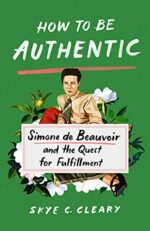
I like books that look at how to live and explore what specific thinkers or traditions down the ages have to say on the subject that might help me get a better perspective on why we’re here. In How to Be Authentic, Skye Cleary writes about how the French philosopher Simone de Beauvoir—author of The Second Sex amongst many other writings both fiction and nonfiction—has influenced her life. This is an existentialist take on being a human being, in other words, you have to make your own meaning and even your own person–there’s no mould you can just slip into. The chapters are divided into themes “Friendship”, “Happiness” etc. I recommend dipping into them one at a time rather than reading the book to cover-to-cover, as this is an impressive but exhausting personal philosophy.
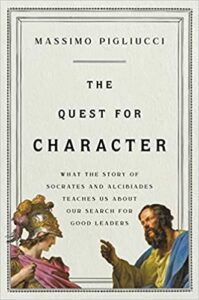
Another book to look out for, out at the end of September, is How To Be Good (in the UK) and The Quest for Character (in the US) by Massimo Pigliucci, a philosopher whose interview on Stoicism—the personal philosophy he’s adopted to get through life—is one of the most read interviews on our site. The book takes a historical approach—the subtitle is ‘What Socrates Can Teach Us About the Art of Living Well’—and focuses on the qualities that make a good leader, a question many of us here in the UK have been reflecting on in recent years.
A book that’s received a lot of coverage—including from Paul Krugman in the New York Times, who called it “magisterial”—is Slouching Towards Utopia by Brad DeLong. ‘Slouching’ is one of my favourite words, so I was happy to see it in a book title, though I don’t think it does justice to what’s been achieved in economic terms over the long 20th century he covers. It’s been more of an exciting hurdle race with frequent and sometimes catastrophic crashes. DeLong is a macroeconomist at UC Berkeley who is also very interested in history (he first came to my attention for his ‘Liveblogging’ of World War II), and this book is valuable because it’s a global history of the 20th century told by someone who understands economics. Over more than 500 pages, you’ll get historical details (eg why the Nazis were called the Nazis) but also his analysis of why, for example, China was economically behind Japan in the early 20th century or Argentina has not been able to join the ranks of the wealthiest nations. After reading this book, you’ll want to read some Hayek and Polanyi, if you haven’t already.
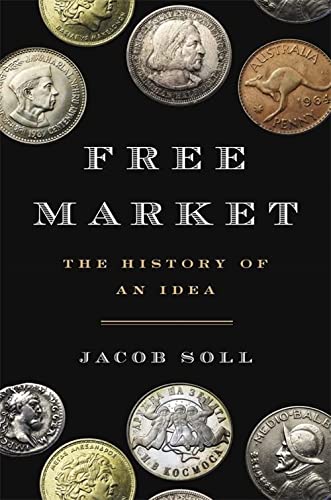
Also in economic history highly relevant to the present is a book called Free Market: The History of an Idea by Jacob Soll, a professor of history and accounting at the University of Southern California. Here in the UK, we’ve just had a new prime minister chosen for us who believes that free markets—meaning, in the case of British Conservatives, lower taxes and less regulation—can solve everything. Unfortunately, the evidence suggests otherwise, as the sewage currently flowing into the river outside my office due to poor regulation attests. As an ideology, however, it’s an enticing one and this is a historic account that traces its allure, starting with Cicero.
Lastly, if you enjoy medical history (I do, partly because it’s a reminder of how far we’ve come in the last century-and-a-half), Lindsey Fitzharris, author of the Wolfson History Prize-shortlisted The Butchering Art, about Joseph Lister, had a new book out this summer. Set in World War I, it’s called The Facemaker and tells the story of another extraordinary surgeon, Harold Gillies, who used his skills to help to restore the looks of young men who came out of the trenches horribly disfigured. Like her previous book, this one is not for the squeamish.
Part of our best books of 2022 series.
September 11, 2022. Updated: February 27, 2023
Five Books aims to keep its book recommendations and interviews up to date. If you are the interviewee and would like to update your choice of books (or even just what you say about them) please email us at [email protected]
Five Books interviews are expensive to produce. If you've enjoyed this interview, please support us by donating a small amount.
